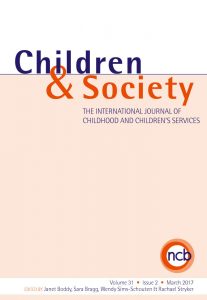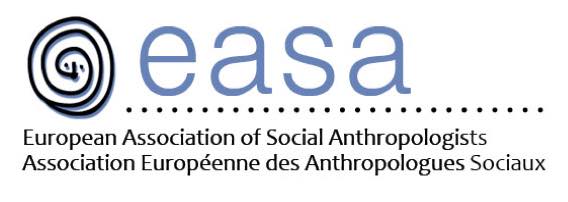Interview: Professor Diane Richardson on Sexuality and Citizenship

Diane Richardson is a Professor of Sociology at Newcastle University. Diane is internationally recognised for her work in the area of feminist and sociological study of sexuality and gender, including recent publication, Sexuality and Citizenship (Polity 2018). A central concern of this research is to understand how models of citizenship are constructed and deployed by marginalised groups as new democratic moments emerge. Diane’s research addresses interlinked themes including the relation between cultural and material aspects of recognition, as well as the conceptualisation of sexual citizenship and the democratisation of intimate life.
What led you to focus your research on issues of sexuality, gender in relation to citizenship?
My first article on sexuality and citizenship was published in Sociology (32:1) in 1998, at a time when political language was shifting, and rhetoric around sexual politics was starting to use citizenship in relation to advancement of rights. Whereas black or gay pride used the language of celebration, an emerging model requested equality within the framework of the rights of the citizen.
Through two Economic and Social Research Council (ESRC) funded empirical studies, in different global contexts, my research concerned the rights and demands of different minority groups. The first in 2007-2010, with Professor Surya Monro at University of Huddersfield, highlighted the importance of implementation mechanisms in driving forward the equalities agenda for sexual and gender minorities (http://research.ncl.ac.uk/selg/). Across Wales, Northern Ireland, and North and South England, we interviewed key stakeholders and local government workers about their views on the equality measures in place in their constituency, and identified barriers and patterns of resistance to such work that affected implementation and access to citizenship, such as rurality, political hostility and lack of interest in diversity issues.
The second project (2009-2012), in collaboration with Professor Nina Laurie at the University of St Andrews, and Dr Meena Poudel and Dr Janet Townsend, was an examination of gender inequalities and citizenship issues in Nepal, specifically how sexuality stigma affected women when they had returned from trafficking situations (www.posttraffickingnepal.co.uk). In Nepal, citizenship is attained at age 16, not from the state, but upon recommendation from your family, usually by a girl’s father or a direct male relative. The research shows that trafficked women are typically stigmatised (labelled as prostitutes and/or HIV ‘carriers’), and experience social rejection from their families and communities. Lacking family support makes it difficult for them to access citizenship. In turn they can’t open a bank account, rent accommodation, gain employment and money, confer citizenship to their children.
The book, Sexuality and Citizenship (Polity 2018), was then based on my Leverhulme Major Research Fellowship (2013-2016) project, ‘Transforming Citizenships: Sexuality, Gender and Citizenship Struggles.’ I wanted to bring into conversation both sets of data from the two previous ESRC projects, and use this to query some of the assumptions that western centric theories have about sexuality and citizenship, largely through studies of LGBT issues, as well as to look at the ways sexuality shapes different aspects of citizenship both at economic levels, and in terms of a sense of belonging in the culture.
What are the major themes of the book?
Part one of the book rethinks sexual citizenship, asking, is sexual citizenship a western centric concept, and in what ways can we unpack this? We tend to think of someone who is a ‘sexual’ being or who has ‘sexuality’ in terms of high-income and privilege: the kind of affluent, atomised sexual citizen who can afford to go out, who has the time. Of course, it’s not like that for many people, a single mother with three children is a different kind of sexual citizen.
Alternatively, if citizenship is largely about rights to private relationships, privacy, and the right to choose, what does this mean for those who don’t have privacy and don’t have the right to choose? If, for example, your choices are delimited because your choice of sexual partner is defined by family, and exercising your right to choose can lead to violence and dishonour for your family. What about the homeless, refugees, migrants, people in residential care; when we think of sexual citizenship, do we think of them? These questions reveal not only gaps in our understanding, but exclusions in how we think and consider people in ways that can be thought of as an ‘othering’ of them.
The second part considers current debates in sociology such as the influence of globalization on sexuality, and the materialization of sexuality. Sexuality and citizenship is often seen as belonging to the cultural, the privatised, concerned with personal relationships rather than material structures and institutions. I argue that in a world of austerity and precarity, if issues like war, security, migration, become detached and these sexual rights, rights to choose, rights to privacy, are rights only for high income groups in affluent societies, then this is disassociating sexual and economic justice. I can’t disassociate these, I want to recognise that in this climate where people are concerned about economic justice, this is also about sexuality.
If you take an example such as Nepal, not having sexual citizenship is a form of poverty; it is highly significant to the fact that you become impoverished. If my sexualised status disenfranchises, then not having citizenship means that it’s very hard for me to have a livelihood. In this case heterosexual marriage can become a key means to both a livelihood and a husband who can confer citizenship, so marriage becomes a way out of poverty.
I’m trying to frame this and say in these conditions it’s very risky to privatise sexuality, not just as private spaces as we’ve been talking about as public and semi-public, but the public space as a political field as well.
How have theories, thinking, and language developed since your first article in 1998, through to your book in 2018?
When I started writing about citizenship I argued that citizenship is sexual citizenship, because sexuality underpins ideas about citizenship. To gain access to welfare rights, benefits, parental rights, in many countries you needed to be married, that is to have institutionally recognised heteronormative presumed sexual coupledom.
Since then, the success of LGBT rights demands has led to legalisation of same-sex marriage in a number of countries, yet it still holds that you have to be in a couple to be eligible for much of state welfare. We have progressed from theorising sexuality and citizenship, to discussing ‘sexual citizenship’ as if it is a thing, a noun or descriptor. Rather than ‘sexual citizenship’, I write about sexuality AND citizenship because I’m very critical, as a feminist, that if we put all our hopes on citizenship, it then produces a certain kind of sexual politics that has not delivered. We know, for instance, that formal legal equality does not eradicate violence and abuse.
I’m interested in how citizenship is producing certain citizens as sexual citizens, and raising questions about how sexuality is embedded, what that does for people who aren’t buying into that, and how it reproduces particular types of rights and particular types of people.
Acknowledgements
Thanks are given to the Leverhulme Trust for granting the Leverhulme Trust Major Research Fellowship, which provided the space from September 2013 to January 2016 to carry out much of the research that informs this book.






1099-0860/asset/NCB_logo.gif?v=1&s=40edfd0d901b2daf894ae7a3b2371eabd628edef)